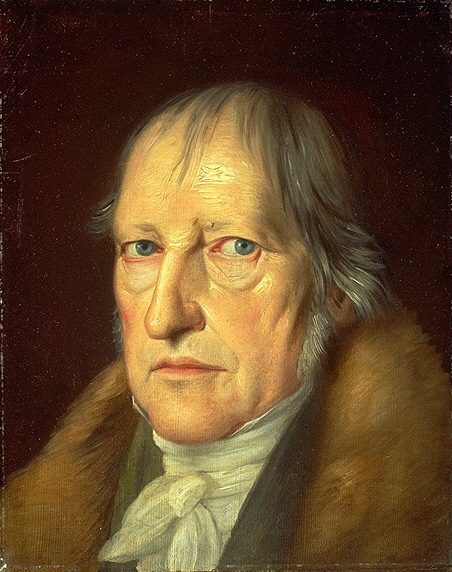Georg Wilhelm Friedrich Hegel – 1770-1831
Tom Shepherd's Friends in High Places (:79-88) offers an excellent introduction to the work of Hegel. For the purposes of our study, we’re going to focus on the Hegelian concept of the dialectic.
Monism and the problem of evil
Hegel believed, essentially, in “one presence and one power,” although he certainly did not describe this belief in terms quite like those we use today. In theological terms, the belief in one presence and one power is called monism. While monism satisfies both the New Thought mind and heart in most respects, it does leave us with the problem of evil. If there is only one presence and one power, then does God create evil? If God did not create evil, then who or what did? To say that God created evil makes God monstrously cruel. To say that God did not create evil but does nothing to prevent it makes God weak, ineffectual, powerless, even non-caring. The idea of “justifying God’s actions” is called theodicy.
Evil as absence of Good
New Thought writers have long held that Good is the only reality; but it cannot be appreciated unless it is contrasted with its absence, which humans call evil. Dr. H. Emilie Cady said “apparent evils are not entities or things of themselves. They are simply apparent absence of the good, just as darkness is an absence of light.”
Idea and Nature combined as Spirit
But Emilie Cady's statement that evil is just an absence of Good is not truly satisfying for the victims of the Holocaust or for one who has lost a child to cancer. Nor are channeled statements such as “Nothing real can be threatened; nothing unreal exists.” Hegel's dialectic explains how both Being and Nothing are united into Becoming (“Dialectic” Wikipedia). They are inherent in and internal to things. Hegel's answer to Holocaust victims would be an acknowledgement of the reality of suffering, but also an understanding that from this tragedy, combined with the Truth of God, human beings have an opportunity to create a greater, more perfect Reality, which he calls Freedom.
This opportunity to create a more perfect reality means that our power rests, not in our ability to prevent all evil things from happening, but rather in our unlimited capacity to transform any and all evil into a greater good.

/2006/02/hegel_and_god_r.html















